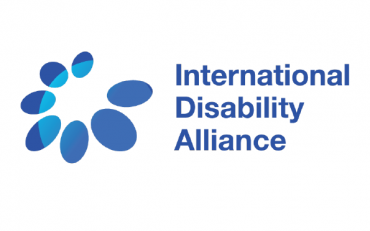The inclusion of persons with disabilities from the start of a comprehensive refugee response is recognized in the Global Compact on Refugees as an essential element of protecting and
..."States Parties shall take, in accordance with their obligations under international law, including international humanitarian law and international human rights law, all necessary measures to ensure the protection and safety of persons with disabilities in situations of risk, including situations of armed conflict, humanitarian emergencies and the occurrence of natural disasters."
- Article 11 – Situations of risk and humanitarian emergencies, United Nations Convention on the Rights of Persons with Disabilities
Background
(Download the IDA background document on Article 11 in Word or PDF)
Persons with disabilities are among the most marginalised in any crisis-affected community. An estimated 9.7 million persons with disabilities are forcibly displaced as the result of persecution, conflict, violence and other human rights violations. In some cases, morbidity of persons with disabilities in a disaster has been estimated at a rate 4 times higher than those without disabilities.
Armed conflicts and emergency situations increase the number of barriers faced by persons with disabilities on a larger scale. In crisis situations, persons with disabilities require the same assistance common to all those affected, in addition to specific requirements related to disability. Conflicts and natural disasters heighten the risks faced by persons with disabilities as they seek out assistance, support and protection, and impact access to and the collapse of essential services. Where services exist, inaccessible communication strategies often exclude persons with disabilities from identifying and utilizing them. Scant data, poor identification and registration and lack of provision of reasonable accommodation compound the exclusion of persons with disabilities in crisis needs-assessments.
Multiple and intersecting forms of discrimination exacerbate the situation of persons with disabilities in situations of risk and humanitarian emergencies. For example, children with disabilities face higher risk of abuse and neglect, while women with disabilities are at increased risk of sexual violence during humanitarian crises.
Inclusive humanitarian action and disaster risk reduction requires the full inclusion and meaningful participation of persons with disabilities and their representative organizations in needs assessments, design, implementation, coordination, monitoring and evaluation of humanitarian and disaster preparedness and response programmes and policies is crucial. DPO leadership, skills, experience and expertise, and active participation in decision-making and planning processes, including in appropriate coordination mechanisms, is an essential prerequisite to successfully reshape humanitarian aid and emergency response.
Find out more:
- Learn more about the UN conventions and political commitments relevant to the situation of persons with disabilities in conflict, crisis and humanitarian emergencies
- Learn more about the development of the IASC Guidelines on Inclusion of Persons with Disabilities in Humanitarian Action
- Inclusion of persons with disabilities in humanitarian action - consortium project led by HI
- Learn more about Putting Persons with Disabilities at the Centre of Disaster Preparedness and Response
How to work with IDA and our members on Article 11:
- Contact the IDA Secretariat: eyoussefian [at] ida-secretariat.org
- Sign up to the Stakeholder Group of Persons with Disabilities: Thematic Group on Disaster Risk Reduction or read more information
Reports
- Inclusion of persons with disabilities in humanitarian action: Case Studies Collection 2019
- Article 11 of the Convention on the Rights of Persons with Disabilities (CRPD): legal frameworks guiding inclusive humanitarian action and guidance for CRPD reporting
- Humanitarian Practice Network: Disability inclusion in humanitarian action

